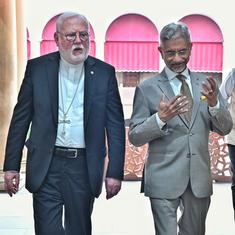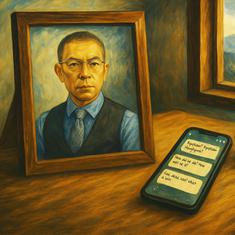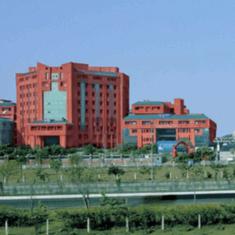Bombay HC delivers split verdict on pleas challenging government’s fact-checking unit
The matter will now be placed before a three-judge bench of the court.

The Bombay High Court on Wednesday delivered a split verdict on the validity of amendments to the Information Technology (Intermediary Guidelines and Digital Media Ethics Code) Amendment Rules, 2023, that gives the Centre the power to set up a fact-checking unit, Bar and Bench reported.
A bench of Justices Gautam Patel and Neela Gokhale pronounced the verdict in the four petitions filed by stand-up comedian Kunal Kamra, the Editors Guild of India, the Association of Indian Magazines and the News Broadcast and Digital Association.
The petitioners had moved the High Court against the Centre’s decision to amend the information technology rules to allow a government-notified fact-checking unit to tag Union government-related news as “fake news”.
While Patel ruled in favour of the petitioners and struck down the amendments, Gokhale dismissed the pleas.
The matter will now be placed before a three-judge bench as per the rules of the High Court, Live Law reported.
The petitioners had urged the court to set aside the provisions of the amendment, arguing that the rules are arbitrary and unconstitutional. The amendments do not fall within the scope of reasonable restrictions on freedom of speech provided in Article 19(2) of the Constitution, the petitioners said.
They argued that the rules did not have a provision for a showcause notice to be served before action was taken by the fact-checking unit.
Further, the rules did not specifically define what is “blatantly false, fake and misleading” and what constitutes “government business”. The government cannot adjudicate on the veracity of the information on social media, the petitioners said.
The amendment will have a “chilling effect” as the provisions would give the government “monopolistic power” to decide what information is required to be circulated about its functioning, Bar and Bench quoted the petitioners as having pleaded.
Kamra had argued that, as a political satirist who relies on social media platforms to share his content, the new rules could lead to arbitrary censorship of his work.
Several civil society organisations have also expressed concern about potential misuse of the provision pertaining to the government’s fact-checking unit.
In April, the Centre had argued in an affidavit before the court that false and misleading information can adversely damage electoral democracy, the economy and the social fabric of the country in many ways.
The Centre had told the court that the rules do not prohibit expression of opinion or critical analyses against the government.
The content flagged by the fact-checking unit to an intermediary such as Facebook and Instagram will not be removed automatically, the Centre submitted before the court. The intermediary has a choice to either remove it right away or add a disclaimer that the content has been flagged, Bar and Bench quoted Mehta as having said.
Mehta told the court on Wednesday that the Centre will not notify creation of the fact-checking unit for another 10 days.
Also read:
How the Centre’s planned IT rule changes will empower it to censor unfavourable news









